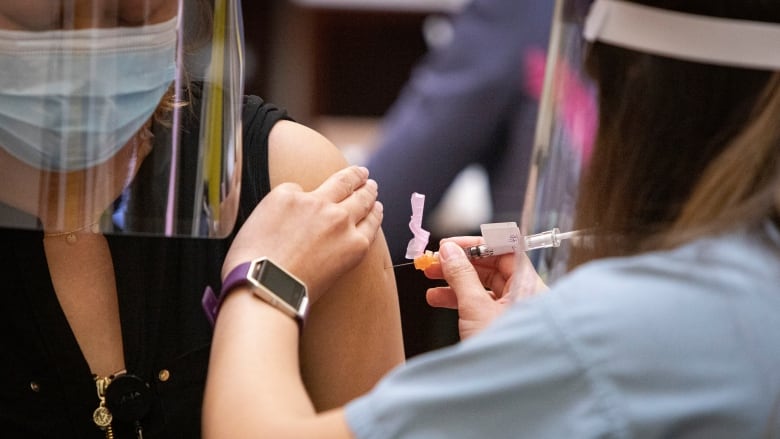'How much do you want your life back?': Doctor hopeful vaccine hesitancy won't be a big issue
Theyre actually held to a higher standard than drugs

The massive impact of the COVID-19 pandemic on life in Canada will likely be a factor in convincing people to get a vaccine, says a vaccinology specialist at Dalhousie University.
"COVID has really distressed most people, in terms of upsetting their quality of life and sense of well being, and their ability to work. Many of us are working from home or a number have lost their jobs," said Dr. Noni MacDonald, a professor in pediatrics and infectious diseases.
"How much do you want your life back?"
MacDonald said she is no longer working with patients, focusing instead on research and policy, so her turn to be vaccinated has not come yet. But she said she would not hesitate to get one today if it was offered.

While the vaccines currently available have been developed at unprecedented speed, she said they still met all the standards that every vaccine in Canada needs to.
"They're actually held to a higher standard than drugs are. They have to have less adverse events, they have to be safer, and they have to be effective before they get approval," said MacDonald.
Vaccine development involved 10s of thousands
She called the vaccine development a monumental effort.
The Pfizer-BioNTech study alone had 50,000 participants in 15 different countries. That doesn't count all the doctors, nurses, lab technicians and other support people who managed the trials, delivered the vaccines, and monitored the results.

MacDonald, who sits on the World Health Organization's strategic advisory group on immunization, said the WHO started talking about the need to develop a vaccine last winter, in the weeks before the pandemic was declared. It was a worrisome time, because there was no guarantee that a vaccine for this particular virus was even possible.
"Until you've done the animal experiments to show that you can mount an immune response in the animal and prevent infection, you don't even know if you're going to be at the table," she said.
With 72 million vaccines required to immunize all Canadians, and 70 per cent of people vaccinated, the mark for an acceptable level of herd immunityunder any conditions is going to be a slow process,MacDonald said
While that is not ideal, it may give some people who are hesitant more time to become comfortable with getting vaccinated, she said.
She is hopeful that the vaccination program in Atlantic Canada can be completed in September.
More from CBC P.E.I.
With files from Island Morning












_(720p).jpg)


 OFFICIAL HD MUSIC VIDEO.jpg)
.jpg)



























































































